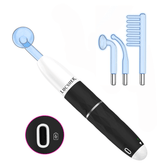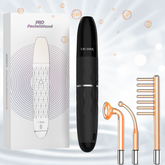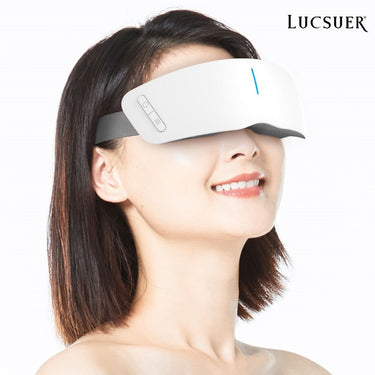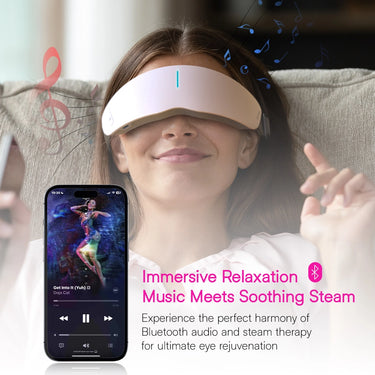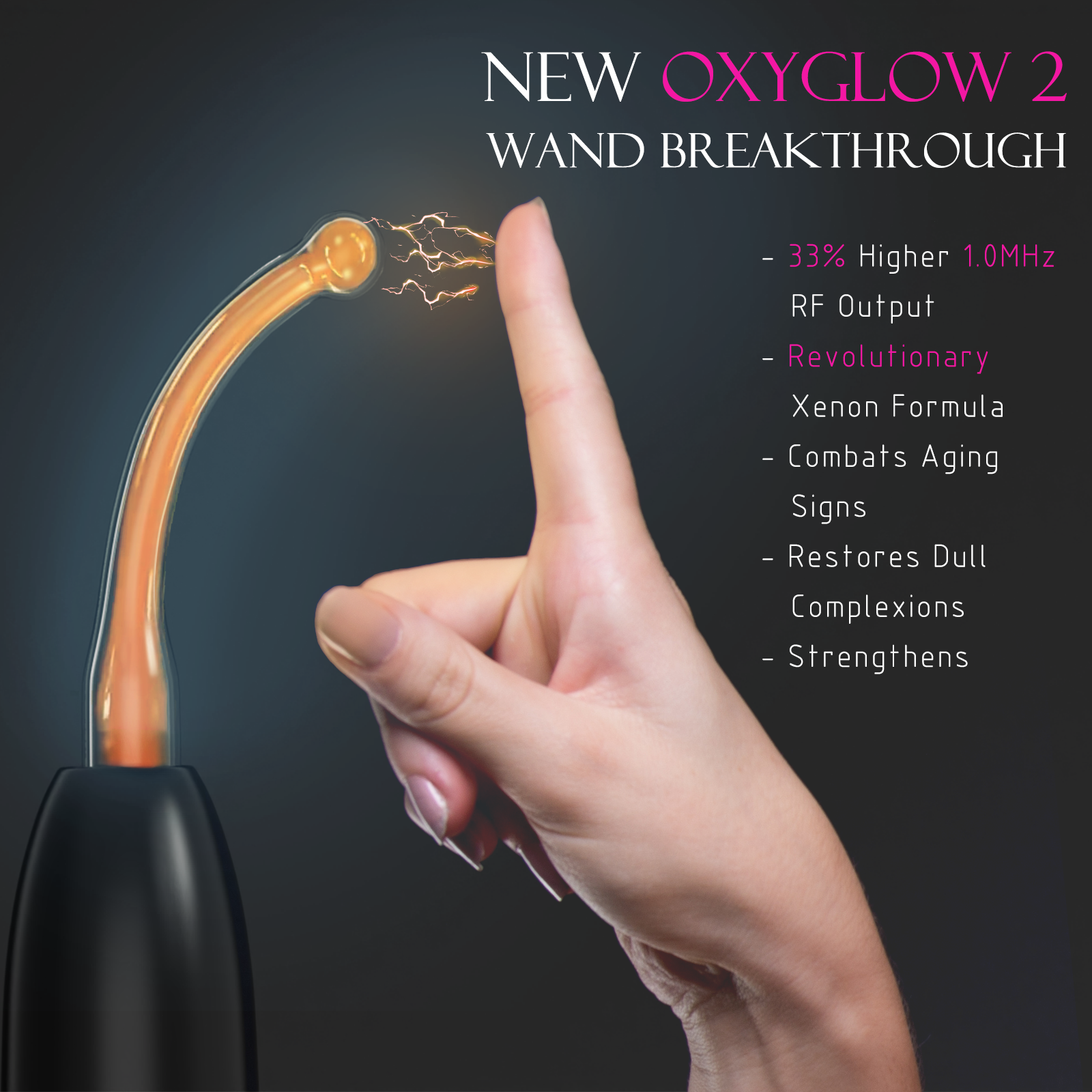In our fast-paced, always-on world, getting a good night's sleep has become more challenging than ever. Light pollution, digital devices, and irregular schedules can all contribute to poor sleep quality. But what if there was a simple, affordable solution that could dramatically improve your sleep? Enter the sleep eye mask, also known as an eye mask for sleep – a small but mighty tool in the quest for better rest.
What is a Sleep Eye Mask?
A sleep eye mask, or eye mask for sleep, is a soft, lightweight covering designed to block out light from your eyes while you sleep. These masks come in various shapes, sizes, and materials, but they all serve the same primary purpose: to create a dark environment for your eyes, regardless of the ambient light in your surroundings.
The Science Behind Sleep Eye Masks
To understand why sleep eye masks are so effective, we need to delve into the science of sleep. Our bodies are naturally attuned to the cycle of day and night, a phenomenon known as the circadian rhythm. This internal clock is heavily influenced by light exposure.
When it's dark, our bodies produce melatonin, often called the "sleep hormone." Melatonin helps regulate our sleep-wake cycle and promotes restful sleep. However, exposure to light – even small amounts – can suppress melatonin production, making it harder to fall asleep and stay asleep.
This is where sleep eye masks come in. By blocking out light, they create an artificially dark environment for your eyes, encouraging melatonin production and signaling to your body that it's time to sleep.
Benefits of Using a Sleep Eye Mask
- Improved Sleep Quality: By blocking out light, sleep eye masks can help you fall asleep faster and experience fewer sleep disturbances throughout the night.
- Increased Melatonin Production: The darkness created by the mask promotes natural melatonin production, leading to more restful sleep.
- Better Sleep in Varying Environments: Whether you're traveling, working night shifts, or just dealing with a bright bedroom, an eye mask for sleep can help you create ideal sleep conditions anywhere.
- Reduced Eye Strain: If you spend a lot of time looking at screens, wearing a sleep eye mask can give your eyes a much-needed break.
- Potential Beauty Benefits: Some people report reduced puffiness around the eyes and fewer wrinkles with regular use of sleep eye masks.
- Cost-Effective Sleep Solution: Compared to blackout curtains or other sleep aids, eye masks are an affordable way to improve your sleep environment.
Choosing the Right Sleep Eye Mask
Not all eye masks for sleep are created equal. Here are some factors to consider when selecting the perfect mask for you:
Material
- Silk: Luxurious and gentle on the skin, silk masks are less likely to cause irritation or leave marks on your face.
- Cotton: Breathable and natural, cotton masks are comfortable and suitable for sensitive skin.
- Memory Foam: Contoured memory foam masks provide excellent light blocking and conform to your face shape.
- Synthetic Blends: Often more durable and easier to clean, synthetic masks can be a practical choice.
Design
- Flat Masks: Simple and lightweight, these are great for back sleepers.
- Contoured Masks: These have molded eye cups that don't put pressure on your eyelids, making them ideal for side sleepers.
- Weighted Masks: Some masks contain small weights or beads for added pressure, which some users find soothing.
Features
- Adjustable Straps: Ensure a comfortable fit without being too tight or loose.
- Nose Bridge: A flexible nose bridge can prevent light from seeping in around your nose.
- Cooling Properties: Some masks incorporate cooling gels or fabrics to help regulate temperature.
How to Use a Sleep Eye Mask Effectively
- Choose the Right Time: Start using your mask about 30 minutes before you plan to sleep to allow your eyes to adjust.
- Create a Routine: Incorporate the eye mask into your nightly routine to signal to your body that it's time to wind down.
- Ensure a Proper Fit: The mask should be snug but not tight. It should block out light without causing discomfort.
- Keep It Clean: Wash your sleep eye mask regularly according to the manufacturer's instructions to maintain hygiene.
- Pair with Other Sleep Hygiene Practices: For best results, use your eye mask in conjunction with other good sleep habits, such as maintaining a consistent sleep schedule and avoiding screens before bedtime.
Common Myths About Sleep Eye Masks
- Myth: Eye Masks Are Only for Light Sleepers Reality: While light sleepers may benefit greatly from eye masks, they can improve sleep quality for anyone, regardless of how heavily they sleep.
- Myth: You'll Become Dependent on the Mask Reality: While you may find it easier to sleep with the mask, you won't become physically dependent on it. It's a tool to improve sleep, not a crutch.
- Myth: Eye Masks Are Only for Nighttime Use Reality: Eye masks can be beneficial for daytime naps, meditation, or any situation where you need to rest your eyes.
Real User Experiences
To give you a better idea of how sleep eye masks can impact real lives, let's look at some user testimonials:
Sarah, 34: "I work night shifts as a nurse, and my sleep eye mask has been a game-changer. I can now sleep soundly during the day, even with sunlight streaming through my curtains."
John, 45: "As a frequent business traveler, my eye mask for sleep helps me adjust to different time zones and get rest on long flights. It's become an essential part of my travel kit."
Emma, 28: "I was skeptical at first, but after trying a silk sleep eye mask, I've noticed a significant improvement in my sleep quality. I wake up feeling more refreshed, and the dark circles under my eyes have diminished."
Potential Drawbacks and How to Overcome Them
While sleep eye masks offer numerous benefits, some users may encounter challenges:
- Discomfort: If you find your mask uncomfortable, try different styles or materials until you find one that suits you.
- Skin Irritation: Opt for hypoallergenic materials if you have sensitive skin, and ensure you clean your mask regularly.
- Mask Slipping Off: Look for masks with adjustable straps or consider a contoured design that stays in place better.
- Feeling Claustrophobic: Start by wearing the mask for short periods during the day to get accustomed to the sensation.
The Future of Sleep Eye Masks
As sleep technology advances, we're seeing exciting innovations in the world of eye masks:
- Smart Masks: Some masks now incorporate sleep tracking technology, light therapy, or even play soothing sounds.
- Customizable Options: 3D-printed masks tailored to individual face shapes are becoming more accessible.
- Sustainable Materials: Eco-friendly masks made from recycled or biodegradable materials are gaining popularity.
Conclusion: Embracing Better Sleep with Eye Masks
In our quest for better sleep, sometimes the simplest solutions can have the most profound impact. Sleep eye masks, or eye masks for sleep, offer a straightforward, affordable, and effective way to improve your sleep quality. By blocking out light and creating an ideal sleep environment, these small accessories can lead to significant improvements in your overall well-being.
Whether you're a light sleeper, a shift worker, a frequent traveler, or just someone looking to optimize your sleep, a sleep eye mask could be the missing piece in your sleep routine. With various options available, you're sure to find a mask that suits your needs and preferences.
Remember, good sleep is not a luxury – it's a necessity for good health, productivity, and overall quality of life. By incorporating a sleep eye mask into your nightly routine, you're taking a proactive step towards better rest and, by extension, a better you.
So why not give it a try? Your eyes – and your sleep – will thank you.
